Search Results
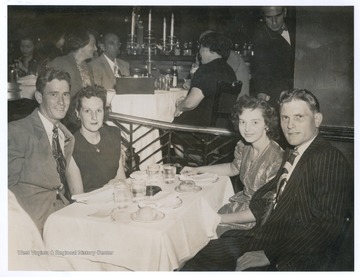
- IDNO:
- 041717
- Title:
- Dale and Edeth Lazzelle; Morgantown, W. Va.
- Date:
- ca. 1940
- Description:
- Caption reads: "Later Willis Ave., Bridgeport, W. Va.".

- IDNO:
- 041718
- Title:
- Dam Number One, City Pumping Station By Night; Clarksburg, W. Va.
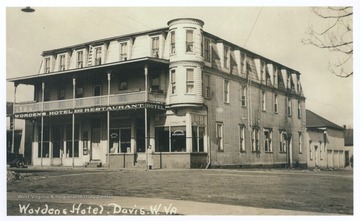
- IDNO:
- 041719
- Title:
- Wordens Hotel and Restaurant; Davis, W. Va.
- Date:
- 1930
- Description:
- Completed in 1898 by Jesse Howard Simmons. The building was used as a hotel until 1917 when it was converted into an apartment complex known as Liberty Flat. It would then be later converted back into a hotel bearing the name Worden's Hotel.

- IDNO:
- 041720
- Title:
- Blackwater Coal Co. Tipple, Davis Slope Mine; Davis, W. Va.
- Date:
- 1925

- IDNO:
- 041721
- Title:
- Davis Youth Baseball Team; Davis, W. Va.
- Date:
- 1912

- IDNO:
- 041722
- Title:
- Lutheran Church; Davis, W. Va.

- IDNO:
- 041723
- Title:
- Deegan Lake Boat Docks; Bridgeport, W. Va.
- Date:
- ca. 1980

- IDNO:
- 041724
- Title:
- Central Station; Doddridge Co., W. Va.
- Date:
- ca. 1907
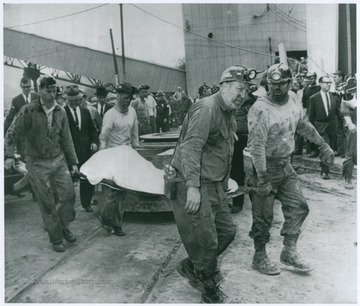
- IDNO:
- 041725
- Title:
- Dola Mine Disaster; Clarksburg, W. Va.
- Date:
- 1963/04/26
- Description:
- Caption reads: "Body removed from mine - Rescue miners carry a body from the Clinchfield Coal Co.'s Compass No. 2 Mine near Clarksburg, W. Va. after an explosion trapped 22 miners in the mine."
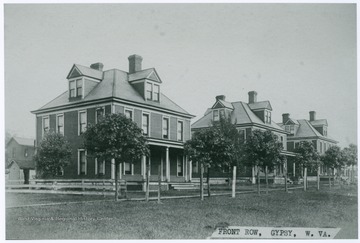
- IDNO:
- 041726
- Title:
- Front Row of Homes; Gypsy, W. Va.
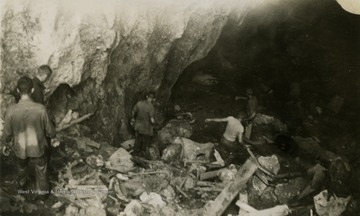
- IDNO:
- 041727
- Title:
- U.S. Army Troops Enter Cave; Biak, New Guinea
- Date:
- ca. 1944
- Description:
- The Battle of Biak was a battle that took place during World War II in Biak, New Guinea from May 27 1944 to August 17 1944. It is famous for being the first time the Japanese allowed uncontested landings of U.S. troops so that they would run into a trap they had prepared inland. The capture of the island cost the U.S. 474 deaths and 2,428 injuries. The Japanese fought until the very end losing 6,100 men to death. The Japanese soldiers would use these caves as fortification and they would be stockpiled with enough ammunition, food, and water to last for months.
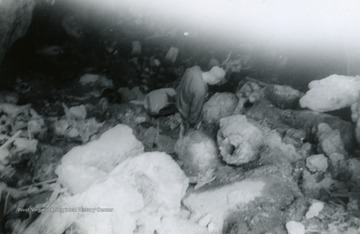
- IDNO:
- 041728
- Title:
- U.S. Soldier Enters Cave; Biak, New Guinea
- Description:
- The Battle of Biak was a battle that took place during World War II in Biak, New Guinea from May 27 1944 to August 17 1944. It is famous for being the first time the Japanese allowed uncontested landings of U.S. troops so that they would run into a trap they had prepared inland. The capture of the island cost the U.S. 474 deaths and 2,428 injuries. The Japanese fought until the very end losing 6,100 men to death. The Japanese soldiers would use these caves as fortification and they would be stockpiled with enough ammunition, food, and water to last for months.











